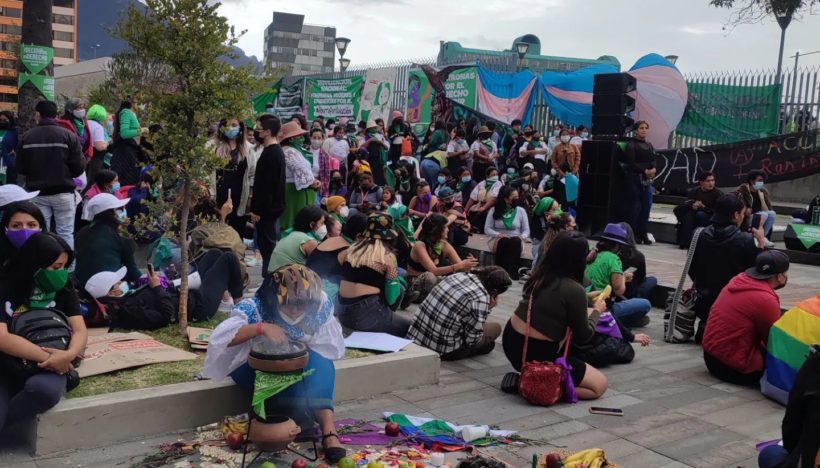“I am a survivor of sexual violence in childhood and I am here to demand that legislation be passed by listening to our life experiences”, began S. Altamirano’s appearance on Tuesday 25 January before the Plenary of the National Assembly of Ecuador, in the framework of the Second Debate of the Draft Organic Law that Guarantees the Voluntary Interruption of Pregnancy for Girls, Adolescents and Women in the Case of Rape.
By Ariadna Reyes Ávila
After the Constitutional Court of Ecuador, in Ruling No. 34-19-IN/21 and Accumulated (2021), ruled that abortion as a consequence of rape was not punishable, the Ombudsman’s Office was responsible for drafting a bill that would guarantee the rights and standards set by the Court and, from that moment on, the National Assembly had a maximum period of six months to hear and discuss the bill and comply with the Ruling.
Within the time limit imposed by the Constitutional Court’s ruling, the National Assembly of Ecuador must pass legislation to protect the human rights of rape victims and survivors by opting for voluntary termination of pregnancy.
Survivors and feminist and women’s organisations warned of unconstitutionalities contained in the Minority Report “Proyecto Vanegas”, which seeks provisions that would render the ruling inapplicable.
This report would shift the burden of social and judicial impunity onto the victims and survivors, restricting their right to opt for voluntary termination of pregnancy in cases of rape with autonomy, access to comprehensive health care without institutional, cultural or procedural obstacles, and failing to comply with the obligation to prevent further harm and suffering.
S. Altamirano, recalling her life experience, insisted before the Plenary of the Assembly, on the direct relationship between the serious harm suffered by sexual violence, the re-victimisation caused by the attempt to impose requirements that ignore these harms and the debt still owed to victims and survivors in Ecuador.
Important facts:
In 2015, the Committee on the Elimination of Discrimination against Women (CEDAW) recommended Ecuador to decriminalise abortion in cases of rape and incest.
In 2019, the Inter-American Commission on Human Rights, in the report Violence and discrimination against women, girls and adolescents in Latin America and the Caribbean, warned about the adverse consequences of the absence of legal, safe and timely options for the voluntary termination of pregnancy in cases of rape, incest or serious foetal abnormalities, as well as the imposition of legal restrictions that may endanger the lives of girls or women and expose them to physical or psychological pain or suffering.










